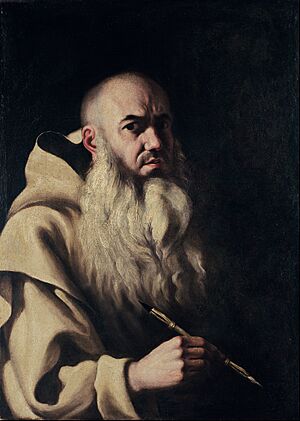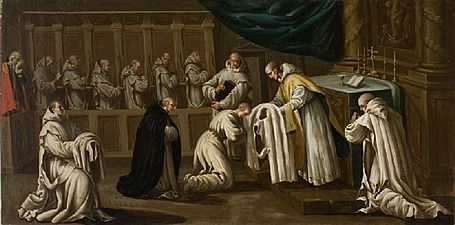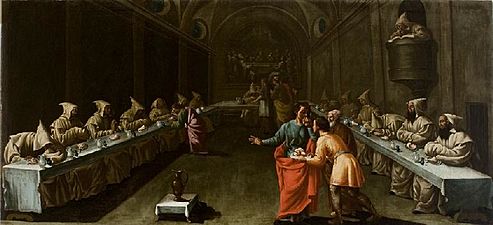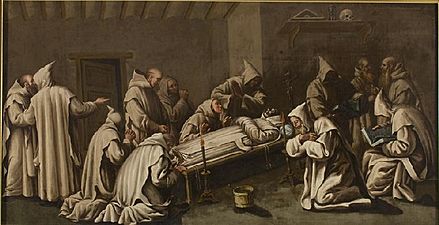Manuel Bayeu facts for kids
Manuel Bayeu y Subías (born January 8, 1740, in Zaragoza – died around 1809, in Zaragoza) was a Spanish painter, architect, and a Carthusian monk. He was known for his art, especially his drawings, and for being part of a famous family of artists.
Contents
Manuel Bayeu's Life and Art
Manuel Bayeu came from a family where art was very important. His brothers, Francisco Bayeu and Ramón Bayeu, were also well-known painters. Most of what we know about Manuel's life comes from letters he wrote to Martín Zapater, who was a friend of his brother-in-law, Francisco de Goya.
Becoming a Monk and Artist
Manuel became a Carthusian monk at the Nuestra Señora de las Fuentes monastery. He joined the monastery in 1760 and officially became a monk in 1772. He spent most of his life there.
It's thought that Manuel often worked with his brother Francisco on art projects, just like his other brother Ramón did. In 1779, some painters in Zaragoza complained that Manuel wasn't paying taxes on the money he earned from his paintings. Manuel explained that his paintings were usually small and were given as gifts to thank people who helped the monastery. This public discussion actually helped him! He gained support from the Real Academia de Bellas Artes de San Fernando, which is a very important art school in Spain. This helped him become officially recognized as a professional artist.
His Famous Works
Manuel Bayeu's most famous works are his simple, personal drawings. He made these while living at the Las Fuentes monastery. Today, you can see many of them in the Museo de Huesca (Huesca Museum).
He also created art in other places, like Los Monegros and Lalueza. He worked at the Royal Monastery of Santa María de Sigena and at the santuario de la Virgen de Magallón in Leciñena. Some paintings in Huesca Cathedral and Jaca Cathedral are believed to be his. Sadly, much of the art he made in Zaragoza has been lost over time.
Later Life and Death
Towards the end of his life, Manuel's religious leader sent him to Mallorca. His task was to paint a large mural at the Valldemossa Charterhouse. While there, he became friends with Gaspar Melchor de Jovellanos, a famous Spanish writer and politician who was living in exile at Bellver Castle.
We don't know the exact date Manuel Bayeu died. However, it's most likely that he passed away during the Peninsular War, possibly during the Second Siege of Zaragoza around 1809.
Selected Artworks
-
Saint Bruno Presents the Habit to a Postulant
-
Saint Hugh in the Refectory
See also
 In Spanish: Manuel Bayeu para niños
In Spanish: Manuel Bayeu para niños





